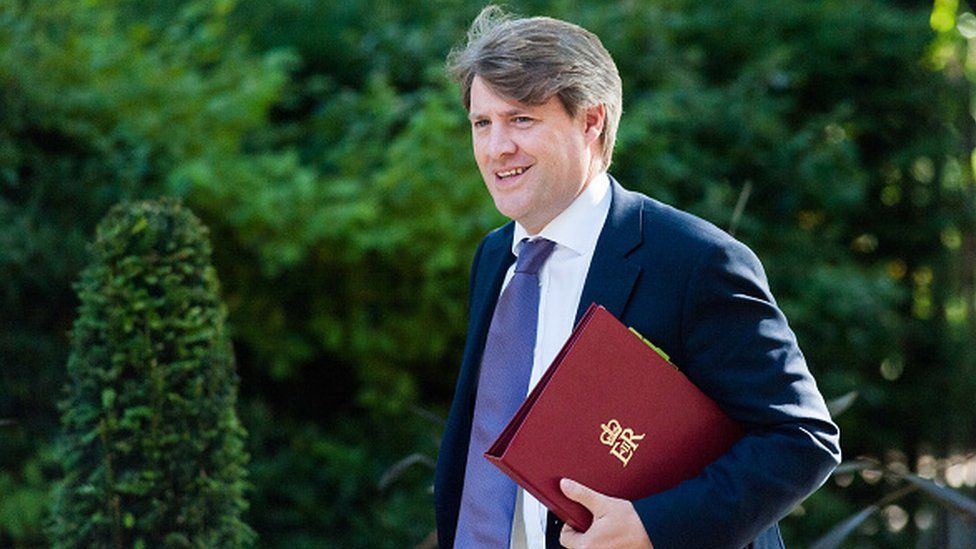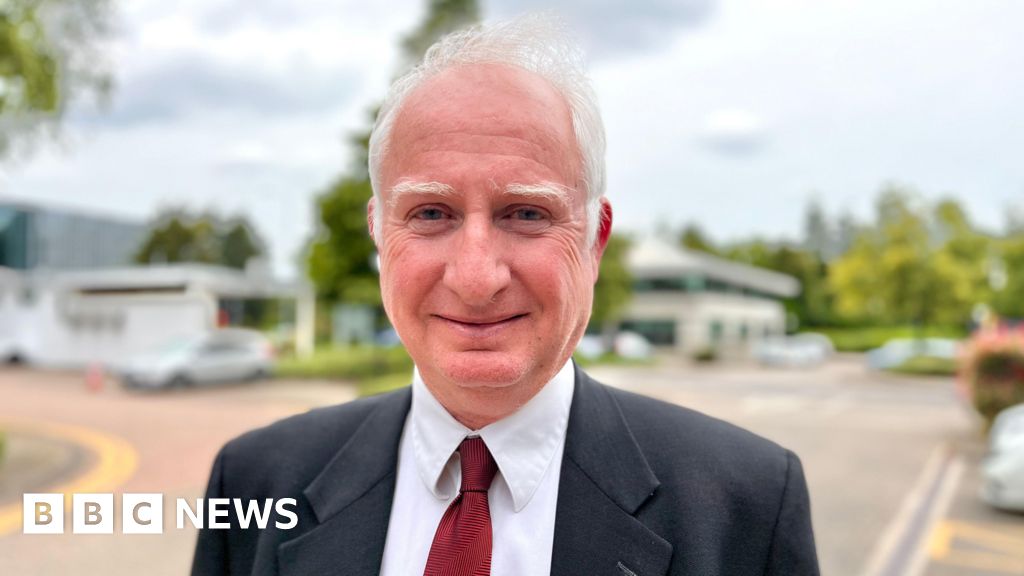ARTICLE AD BOX
 Image source, Getty Images
Image source, Getty Images
Chris Skidmore, a former energy minister, is reviewing the UK government's approach to net zero
By Joshua Nevett
BBC Politics
Conservatives sceptical about the net zero target are set to have a meeting with the MP reviewing the government's approach to lowering carbon emissions.
Tory MP Chris Skidmore is examining the best way to cut emissions to net zero by 2050 while boosting economic growth.
MPs in the Net Zero Scrutiny Group have been campaigning for more UK oil and gas production to lower energy costs.
Green groups and MPs say they are worried about the meeting given the group's calls to rethink net zero.
The Green Party MP, Caroline Lucas, said "climate delayers" and those who impeded solutions to curbing emissions "should be nowhere near government policy".
Labour MP Clive Lewis said while members of the NZSG had "every right" to discuss net zero with Mr Skidmore, a meeting with him in the month of the COP27 climate conference in Egypt would send "a terrible message".
Speaking at the summit on its opening day, former Prime Minister Boris Johnson said now was "not the moment to go weak" on net zero as he expressed concerns over scepticism about the target in the UK.
Mr Skidmore has ruled out recommending scrapping or delaying net zero goals, and said his review will not look at fracking for UK shale gas.
A spokesperson for Mr Skidmore told the BBC he did not feel it was appropriate to prejudge or comment on the review at this time.
Mr Skidmore is one of the greenest Tory MPs and signed the 2050 emissions target into law in 2019, when he was an energy minister.
In September this year, former Prime Minister Liz Truss commissioned him to review the government's delivery of net zero, to ensure it was "pro-growth and pro-business".
Since then, Mr Skidmore has been roving the country to meet politicians, business leaders and energy experts as part of his evidence-gathering process.
A month on from the launch of the #NetZeroReview:
2️⃣4️⃣ evidence session roundtables- speaking directly in person to over 2️⃣5️⃣0️⃣ organisations
Yesterday our Call for Evidence closed- amazingly, we have received over 1️⃣7️⃣5️⃣0️⃣ submissions.
Deeply grateful to everyone’s support
The BBC is not responsible for the content of external sites.View original tweet on Twitter
Craig Mackinlay, chairman of the Net Zero Scrutiny Group (NZSG), told the BBC he had been speaking with Mr Skidmore even though "we couldn't be more opposed" on net zero.
The Tory MP for South Thanet said he didn't "care where we get our energy from" and wasn't "fixated on net zero".
"Whether it's nuclear, whether it's renewable, I don't care, as long as it's internationally competitive in terms of price," he said.
But he said he and Mr Skidmore had already "got agreement on some things" related to net zero, such as the need for better home insulation.
Mr Mackinlay said he would arrange a one-on-one with Mr Skidmore before setting up a more formal meeting to discuss net zero.
They had planned to meet last month at a think-tank roundtable, which was cancelled, Mr Mackinlay said.
Net zero divisions
While Tory MPs broadly agree on the need to lower emissions, they have different views on how to achieve net zero.
Members of the NZSG say they are mainly concerned about the costs of achieving the target by 2050 and insist they do not dispute the science on climate change.
Policies they have agitated for include a return to fracking shale gas in the UK, scrapping green levies on energy bills, and an increase in North Sea oil and gas production.
The path to net zero was a bone of contention at the Conservative Party conference
In January, Mr Skidmore launched a Net Zero Support Group to counter the arguments being made by Mr Mackinlay's group.
Earlier this year, Mr Skidmore said a "false" narrative had linked net zero with the rising energy prices, something the International Energy Agency has since said there was "scant evidence" for.
A green group of Tory MPs, the Conservative Environment Network (CEN), has already spoken to Mr Skidmore and has far more members than the NZSG.
It's thought to have about 20 members, some of whom have close links to think tanks that have long questioned the scientific consensus on global warming.
Call for transparency
Ms Lucas said she hoped the NZSG had accepted "the overwhelming global scientific evidence that we are in a climate emergency".
She said the solutions to climate change were known, and any efforts to thwart them would be "dangerous and destructive".
Mr Lewis, who sits on the Environmental Audit Select Committee alongside Mr Skidmore, said any conversations between the former energy minister and the NZSG should be "entirely transparent".
The Labour MP said Mr Skidmore should have the conversation "out in the open" if he's got "nothing to hide". "If it's all done behind closed doors then that is deeply concerning," Mr Lewis said.
Liberal Democrat MP Wera Hobhouse said the prospect of Mr Skidmore meeting the NZSG was "worrying" and "sends completely the wrong signal" in the month of COP27.
Too many politicians treated the net zero target "like a bus they can miss and just catch the next one", said Ms Hobhouse, her party's climate and energy spokesperson.
But Nathan Bennett, head of public affairs for RenewableUK, said there were "far more Conservative members who recognise the benefits of net zero for the planet, for bill payers, for the economy, than there are in the Net Zero Scrutiny Group".
"I think it's right to hear every argument around net zero," he said.
"We should never exclude scrutiny. But I don't think they're going to change the drive to renewables because of the market economics."
Image source, Getty Images
Image caption,Investment in renewables will be crucial to hitting the net zero target
RenewableUK is one of many parties to have submitted recommendations to Mr Skidmore's review.
The recommendations include reforming the way the UK procures renewable energy and unlocking further investment in port infrastructure.
To avoid the worst impacts of climate change, scientists say countries must curb carbon emissions to keep global temperature rises under 1.5C.
Net zero means taking as much of these greenhouse gases out of the atmosphere as we put in.
In 2019, MPs passed legislation that committed the UK to a legally binding target of net zero carbon emissions by 2050.
Last year, the government published its Net Zero Strategy, which sets out how the UK will deliver on its commitment.

 2 years ago
37
2 years ago
37








 English (US)
English (US)